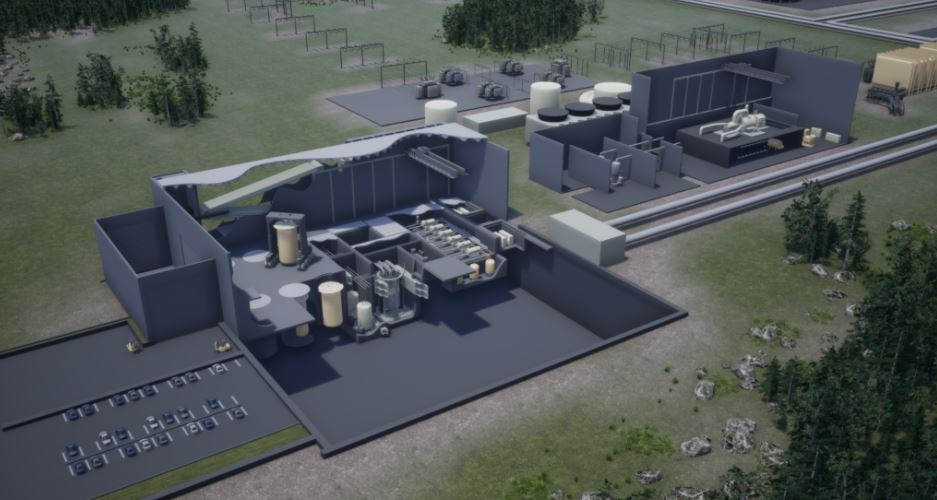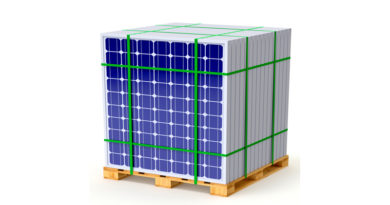Terrestrial Energy’s Nuclear Answers Get A Funding Boost
SMR, or Small, Modular (nuclear)Reactors continue to have their strong supporters around the world, based on a promise of cheap, safe nuclear power. These reactors, many believe, will be essential to strike a balance between low carbon emissions and dependable power. We look at Terrestrial Energy, a Canadian firm that has recently received official backing.
 Pic Courtesy: Terrestrial Energy
Pic Courtesy: Terrestrial Energy
Terrestrial Energy , headquartered in Canada is already in a market that is beginning to look crowded. The market for small module reactors (SMR’s) or generation IV nuclear technology. Backed by the Canadian government, the firm is in the process of creating a 190 MWe Integral Molten Salt Reactor (ISMR). The IMSR® uses a Generation IV molten salt reactor technology in an innovative reactor design. The firm hopes that its reactor will provide dependable and secure power solutions for the production of electricity and energy for industrial process heat generation. If successful, it could also give a new lease of life to nuclear energy, currently in retreat in many developed markets .
The reactor is currently in the second phase of Vendor Design Review in accordance with the Canadian Nuclear Safety Commission. To aid this process and support the company in their work towards nuclear innovation, the Canadian Government has announced an investment of $20 million into the ISMR power plant development. The government has been motivated by possible benefits for the environment as well as the creation of local jobs that Terrestrial Energy has promised. The funds come from the Strategic Innovation Fund (SIF), which has invested for the first time in a venture for a Small Modular Reactor (SMR).
Following the announcement, Navdeep Bains, Federal Minister for Innovation, Science and Technology, said that by getting these small reactors out to the market, they are lending support to the environment only by creating something which will generate energy without harming the planet because of harmful emissions. Besides jobs and more Canadian intellectual property development. Terrestrial Energy, by accepting the investment, has agreed to creating and the maintenance of 186 jobs. Also, 52 CO-OP positions will be created nation-wide and the company is also going to spend at least $91.5 million more into research and development.
The company is using Generation IV molten salt reactor technology for the ISMR, whose power plants have delivered reliable and resilient clean heat and power. They have been continuously striving to work towards a model which will be easier to build and at the same time financially viable, a feat they believe the ISMR will be able to achieve. The firm claims that it is much more multifaceted and adaptable than the nuclear technologies at work presently. One power plant will be generating 195 MW of electricity per unit and by combining two plants, it would be able to power a small city. Moreover, not only is the ISMR technology extremely useful for on-grid electric power generation but also provides an important way in which deep decarbonization can be done by displacement of fossil fuel combustion across a wide industrial front.
The first ever ISMR commercial power plant is expected to come online somewhere in the late 2020s.
Terrestrial has company in the race to deploy SMR’s. One of the biggest, and most well funded is Nuscale Power in the US, which has also win a $1.2 billion backing from the US government over a 10 year period. Russia’s Rosatom has launched a floating 70MW reactor in the Arctic Ocean. China is also building a state backed floating SMR design plant. Even in the UK, a consortium led by Rolls-Royce is working on the development of a 440MW SMR. Most of these reactors will be much closer to practical launch by 2025. The technologies, if they work well, could solve the energy part of the climate challenge for good.
Considering the critical role funding, and raising funds regularly will play for these players, it is no surprise that Terrestrial Energy is led by Simon Irish, a financial professional, as Chief Executive Officer.
Leading the technical side as CTO is David LeBlanc, an authority on molten salt reactor technologies.




